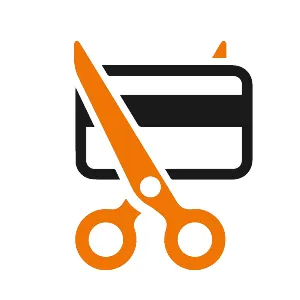Take Control of Your Finances
Debt Resolution Solutions
Tailored to You
See what programs you can qualify for today!


Why Choose Diamond Debt Relief
We offer customized debt relief solutions that fit your specific financial situation
Debt Reduction
Our partners proven strategies have helped clients reduce their debt by up to 60%, freeing them from financial stress.
Expert Negotiators
Work with a team of experienced negotiators that communicate directly with creditors to reach the best possible settlement terms.
Fast Results
Many clients see their first settlement in as little as 90-120 days after starting their selected program
Trusted Service
With over 20+ years of combined experience, we've helped thousands of clients regain their financial freedom.
We Make it Easy
Just 3 steps to determine what you can qualify for.


1. Apply Now
Our debt experts will gather all of your relevant information: the amount of debt you owe, how you got there, and a solution to all of your issues.

2. A Customized Plan
We help you create an individualized and affordable plan that gets you on a path to being debt-free and taking full control of your Personal or Business finances

3. Instant Relief
You will receive immediate debt relief through one of our affiliated programs that work directly with your creditors to implement the best strategy available.
GET A 100% FREE, NO COMMITMENT CONSULTATION AND SEE WHAT OPTIONS ARE AVAILABLE SPECIFICALLY TO YOU!
Frequently Asked Questions
Why should I trust Diamond Debt Relief?
From the company’s founding, our goal has always been to assist individuals like you in regaining control of your financial well-being and securing your future. Our committed team of experts & partners are here to support you every step of the way, tirelessly working to provide the ultimate outcome: debt resolution through one of our affiliated programs.
When approached thoughtfully, seeking relief from debt is a smart decision, not a final option. With Diamond Debt Relief & their affiliated programs at your side, we'll guide you through the process of improving your financial situation with our consultative approach.
What's the difference between Debt Relief and Debt Consolidation?
Debt relief reduces your balances. Your debt is negotiated down, and you pay less than you owe. The creditor forgives the remaining balance in a transaction called a settlement. Debt consolidation combines all of your debt into one loan with a single monthly payment, often at a reduced rate of interest.
How long does the average program last?
Our partners debt relief programs range anywhere from an estimated 12-60 months. It will all depend on your specific needs and financial situation. Our goal is to set up the most sensible and affordable payment plan that provides you with fast and maximum debt relief.
What services do you offer?
Diamond Debt Relief does not offer any services. Instead, Diamond Debt Relief provides potential prospects who may qualify for any debt resolution programs with a free consultation on which route or program they should move forward with based on their unique situations. The programs that Diamond Debt Relief refers clients over to can help you resolve the following debts:
Personal Debts & Loans
Merchant Cash Advances
Credit Cards
Lines of Credit
Collections
Repossessions
Certain Student Debts
*Unsecured debt is any debt that isn’t tied to an asset like a home or automobile. It creates fewer problems for consumers because they don’t stand to lose an asset if they don’t repay the debt. If you fall behind on payments for unsecured debts, your lenders have no claim on your property and can’t repossess items or foreclose on your home, but they can file a lawsuit against you. Diamond Debt Relief does not provide any legal advice and if you receive a lawsuit, you should contact your programs case manager immediately.
Should I negotiate with creditors on my own?
Yes, but Diamond Debt Relief believes you should not take any risks when it comes to negotiating debt, as it can have a long-lasting impact on your financial well-being and peace of mind. Through the programs that are referred by Diamond Debt Relief, they will handle every detail of your debt negotiations – removing the most significant roadblocks standing in the way of your financial independence. These programs have experienced negotiators that have the proper knowledge when dealing with credit agencies, which will save you time and money. Their debt experts know exactly what needs to be done to help each company find the right solutions to support their needs — and how much they can expect to save with specific creditors. It's important to note that results vary based on individual circumstances and there are no guarantees of any specific outcomes.
Get a Free No Obligation
Consultation Today!
Copyright 2025 Diamond Debt Relief. All Rights Reserved.
